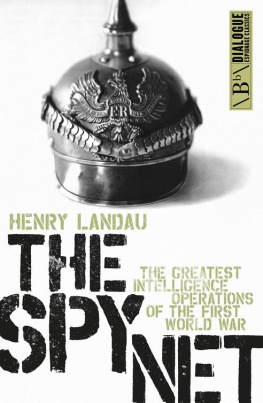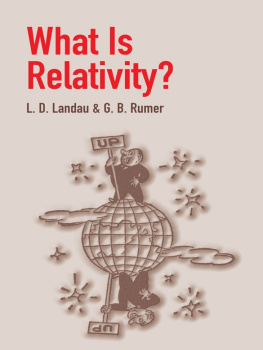H ENRY LANDAU WAS serving with the British Army in 1916 when he was recruited into the British secret service, the organisation we now know as MI6, in order to reorganise the British networks in Belgium that were watching the German troop trains travelling to and from the Western Front. These train-watching networks allowed the British to work out the locations and numbers of German regiments.
Landau, who was born in South Africa, was talent spotted when he dated one of the secretaries to Mansfield Cumming, the first head of MI6 (then known as MI1c) and the original C. On finding out that Landau spoke French, Dutch and German, she told him he was just the man my chief is looking for. He was summoned to see Cummings deputy, Colonel Freddie Browning, at the secret service headquarters in Whitehall Court.
He informed me that I had been transferred to the intelligence corps, and that, as I had been attached for special duty to the secret service, he would take me up to the chief immediately. Up several flights of stairs I went, until I reached the very top of the building. Here, in a room that resembled the stateroom of a ship, I was confronted with a kindly man who immediately put me at ease. It was the chief, Captain C. He swung round in a swivel chair to look at me a grey-haired man of about sixty, in naval uniform, short in stature, with a certain stiffness of movement, which I later discovered to be due to an artificial leg. After a few preliminary remarks, he suddenly came to the point: You are just the man we want. Our train-watching service has broken down completely in Belgium and north-eastern France we are getting absolutely nothing through. It is up to you to reorganise the service. I cant tell you how it is to be done that is your job.
Landau went on to run La Dame Blanche, a group of more than 1,000 Belgian and French agents who monitored the movement of German troop trains to and from the Western Front. Named after a mythical White Lady, whose appearance was supposed to presage the downfall of the Hohenzollerns, it was arguably the most effective intelligence operation of the First World War and, according to Cumming, produced 70 per cent of Allied intelligence on the German forces.
At the end of the war, Landau was rewarded for his work with La Dame Blanche by being offered one of the plum jobs in the post-war intelligence service. I was informed by the chief that, in recognition of my services, he had awarded me the best of his appointments abroad in the post-war re-arrangement of the secret service. I was to open an office in Berlin.
With Bolsheviks causing mayhem and threatening a German revolution to match that in Russia, Berlin was expected to be the services most important overseas station. But Landau not only struggled to come to terms with the work, he also found himself in severe financial difficulties. He left the secret service and went to America, where he became a US citizen and published a book on his wartime intelligence experiences called AllsFair: The Story of the Secret Service Behind the German Lines.
The book was a bestseller in America, but was not published in the UK for fear of legal action by the authorities. Appearing only a year after Hitler had come to power, its revelations about those who had worked for the British during the First World War and had remained in Germany in a number of cases, still working for the British put them at risk. Landau also named his successor as MI1cs head of station in Berlin, Frank Foley, who would subsequently become better known for his work helping Jews escape from Nazi Germany. Shortly after the publication of Alls Fair, the German authorities warned the population to be on the lookout for foreign spies. A large number of spies are busy in Germany collecting all particulars, especially with regard to the possibilities of economic mobilisations, they announced. Spies must be energetically brought to book. Great reserve must be shown towards all foreigners encountered in public houses, railway compartments etc.
A second book was also published in the US to avoid legal action, but this book, originally called Spreading the Spy Net, was the most comprehensive, published in both the US and the UK in 1938. Although Landau had let much that it contained out of the bag in his previous two books, it was still surprising that British secret service chiefs decided against taking any action.
Quite why is not clear, but it might well have something to do with the man Landau describes as the Dane, in what is a deliberately disguised account of the work of the best MI1c agent inside First World War Germany. Karl Krger was not, in fact, a Dane. He was a German naval engineer. Codenamed variously TR16, H16 or, as here, R16, he had been recruited by Landaus wartime boss, the head of MI1cs Rotterdam bureau, Richard Tinsley. Krger had extensive access to the German North Sea and Baltic ports and provided the British with often extraordinary and highly accurate detail, both of damage caused to the German Navy by its British counterpart and of the capabilities and vulnerabilities of the new ships and submarines the Germans were building.
Krger had continued to work for the British after the First World War and, by the time Spreading the Spy Net was published, was providing detailed information on the build-up of German forces under the Nazis. But he was already under suspicion, and taking action against Landaus book would only have alerted the Germans to the British concerns for his safety.
It is unclear whether the Germans ever discovered the full extent of Krgers work for British intelligence, but, shortly after the start of the Second World War, they announced that he had been beheaded by axe (although there is some evidence that he frustrated his would-be executioners by committing suicide). It was initially assumed within MI6 that Landaus account of Krgers work was responsible for his death and when the Americans entered the war in December 1941, there was even an attempt to have Landau arrested but, in fact, when Krger came under suspicion, the British had put one of their best Dutch agents on his tail to make sure he wasnt being followed. The Dutchman assigned to cover Krgers back was also working for the Germans, and it was he who informed them that Krger was a British spy, thereby sealing his fate.
Michael Smith
Editor of the Dialogue Espionage Classics Series
May 2015
I WAS BORN TO be what by chance I became; no child could have been ushered into the world under better conditions or in a more fertile environment for the dangerous and varied service into which I was thrown at the time of the Great War. By blood, by breeding and education, by the very country and atmosphere into which I was born, and the circumstances through which I grew to manhood, I was a composite of many inheritances and many backgrounds.
I was born of a Dutch mother and an English father, in Boer South Africa. My earliest memories centre about the arduous, almost medieval life of the veldt, and my first vivid impressions were those of war. Hazily I can remember the long trek in ox wagons from the Orange Free State to our farm in the Transvaal, when I was between four and five years of age; the long spans of red Afrikander oxen, the kaffirs with their long ox whips, the campfires, the hunters returning with their days bag of springbok and koorhaan remain in my mind pictures at once remote and vivid.
I have visions, too, of my mother superintending the making of household essentials, which the Boer women of those days had to attend to remedies for simple illness, soap, candles, and dried beef or biltong. She was an excellent horsewoman and a fine shot, and, in addition to her many household duties, it came naturally to her to handle the kaffirs and the stock in my fathers absence. I can see her, at the approach of one of those South African thunderstorms which always seemed to come suddenly from nowhere, calling to the kaffirs to bring in the calves and other small stock, and herself scurrying off to direct them. Married at sixteen, she probably knew more about farming and stock-raising than my father, for she came of a long line of French Huguenots and Dutch, who had lived on the land in South Africa for close on 200 years, ever trekking northward to escape British rule, and in search of freedom. There was something elemental in her makeup, a ruggedness of character which breathed of the veldt itself. Her main qualities were dependability and resourcefulness; she was the master of every situation which arose, largely because of her own experiences and a fund of general knowledge carefully handed down by her pioneer mother.













